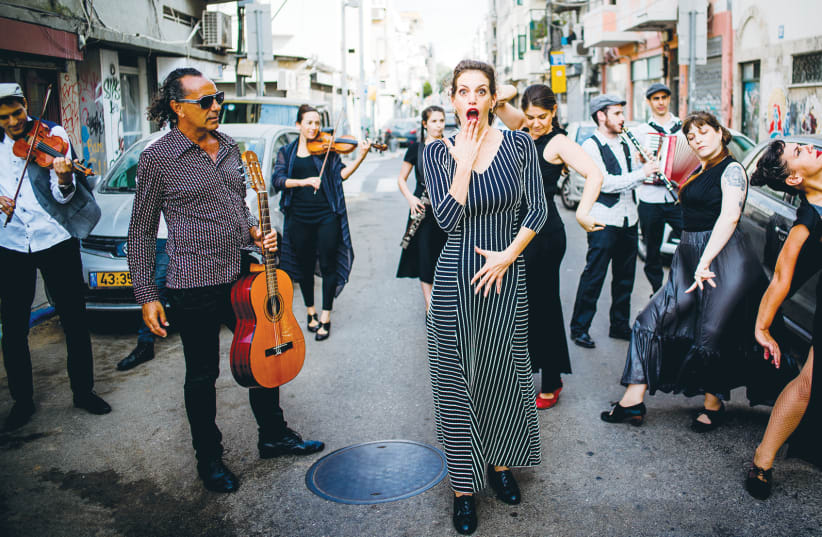For Michal Bratt, performer, teacher, choreographer and artistic director of Pasito – Home for Flamenco in Florentine, the opportunity to incorporate family into work was a cause for celebration.
Her newest work, Anima, is nothing if not a family affair. The show was inspired by Bratt’s own transition from independent woman to wife then mother, and marks her first collaboration with her sister, violinist Hadar Bratt.
“My whole family is an inseparable part of my shows, [whether] it’s babysitting or putting the stage together.... Without them there wouldn’t be anything,” says Bratt over the phone.
Bratt, 38, was born and raised in Haifa. She began dancing at an early age, trying her hands and feet at different styles such as ballet and jazz. It was only at 16, when invited to a recital of a friend, that she discovered her calling in flamenco.
Bratt believes that people can be divided into two groups: those that love flamenco and those that hate it. From that night, she understood that she is among the former.
“One of the groups in that recital did flamenco, and I was glued to my chair. I felt I was experiencing what was happening on stage in my body in a very strong way. It was a very strong connection, as if from a different life or something. It was indescribable, but in my gut I felt it.
“I went home and told my mom that tomorrow I’d start flamenco. It maybe didn’t happen the next day, but I started to study it, and quickly it became the main style I danced.
“I started to go to Tel Aviv to study. I participated in the competition of the Adi Fund and won. I was awarded a scholarship to study flamenco in Spain. I went to Spain and stayed there for five years. I came back in 2012 and opened studio Pasito – a Home for Flamenco, where I teach and create and rehearse.”
In her creations, Bratt tests the boundaries of traditional flamenco, weaving her personal perspective into the rhythms and steps.
In Anima, she took one step further, bringing her familial experiences into the work.
“Since I gave birth to my first daughter, Noga, in 2016, I’ve been thinking about this piece. And then she was joined by her sister, Neta, who is one-and-a-half. I felt the need to share my personal story, as I believe it touches a lot of people. It was such a moving, emotional and powerful experience that I felt it needed to go on stage in some way. Until that point I didn’t know how, but just as the experience was very new, primary, fresh, the creation would be.
“I like to mix genres and find interesting angles that send me out of flamenco, but this is something that is really bigger and different,” she explains.
The music in Anima plays a major role in distinguishing the production from others in the same field. “It’s a show that blends klezmer and flamenco. At first glance, you could say it is trying to make peace between Ashkenazim [Jews of European descent] and Sephardim [Jews of Spanish, Portuguese and North African descent]. But as we worked on it we could see these parallels between flamenco and klezmer. In flamenco, the idea is to accelerate the pace, to shout, and in klezmer, there is that intensity and richness of the music that, at its base, is similar. The two styles connect in a very interesting way,” says Bratt.
Making the music will be Spanish guitarist José Carrillo, “El Fyty” and klezmer band Kleine Menshalach.
“I have been working with José Carrillo for a long time. Kleine Menshalach played at my wedding. We always said we had to do something together, and we didn’t know what or how, and then it really came together on this project.”
Anima will be performed at the Suzanne Dellal Center on July 29 at 8:30 p.m. For more information, visit www.suzannedellal.org.il
